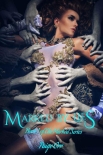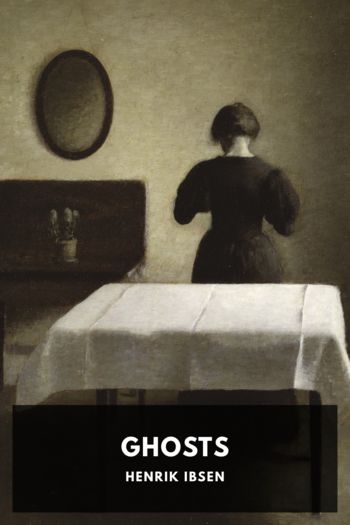Murderous, David Hickson [most read book in the world .TXT] 📗

- Author: David Hickson
Book online «Murderous, David Hickson [most read book in the world .TXT] 📗». Author David Hickson
“Yebo,” said Q using the Zulu word for ‘yes’. He looked at me and I could see the momentary struggle behind his eyes, but he had to say it: “And my brother, Xolani.”
“Your brother. Yes, of course.”
Could it have been that easy? In all my experience in using this technique, I had never encountered the reveal so quickly.
“Let’s talk about your brother,” I said. “Where has he gone on this trip of his?”
Q shrugged and sipped his hot drink, but his face clouded over a little. Khanyi and I waited.
“Pilgrimage,” said Q, and he looked up at me again.
“He is a man of God?”
“A good man,” said Q.
“And he’s gone somewhere to be closer to God?”
Q shrugged.
“How did your brother travel on his pilgrimage? Did he take a bus? A train?”
Q hesitated. The tiniest of moments.
“Bus.”
“When did he leave on his pilgrimage?”
“In the morning,” said Q.
He was closing up again. Rain drummed on the window to emphasise the silence.
“Is it true that your brother sympathises with the EFF?” I said. “I believe the entire village support the Economic Freedom Fighters. It is a freedom fighting enclave. Is that so?”
Q’s eyes lifted, and he considered me for a moment before nodding.
“That’s unusual. A political priest.”
“If you knew the history of this country,” said Q, snapping out of his shell, “you would know that it is the people of God who fight for our freedom.”
“And your brother is still fighting for your freedom? He believes in taking the land back for the people? He believes in killing the white people? One settler, one bullet? Kill the Boer?”
I had hoped to evoke more anger, but Q’s anger was spent as quickly as it had flamed up. He sipped at his chocolate and kept quiet.
“Are you also EFF? You believe in fighting for your freedom?”
For a moment I thought that Q was going to affirm this falsehood. He looked as if he wanted to. But he shook his head.
“You studied economics,” I continued. “Perhaps you warned your brother of the danger of the collapse of the economy? If the EFF get their way, that is what will happen, isn’t it? Zimbabwe was brought to its knees in that way. Did you and your brother argue about that?”
“What economy?” said Q. I had finally stirred a little anger. “The economy that supports the white people? Our people live in abject poverty. What would it affect them if the white people’s economy collapsed?”
I nodded. That was an argument that had seeped into the consciousness of the country in recent years. An idea that had shaken the core of the confident white South Africans who argued that their country could not collapse in the way that neighbouring Zimbabwe had. It was also an argument that opened up the possibility of a violent and destructive solution to the country’s problems.
“This pilgrimage of your brother’s,” I said. “Is it something that is bringing him closer to God, or closer to achieving freedom for your people?”
Q’s eyes regarded me over his hot chocolate. He said nothing. There was something about his brother he was keeping hidden.
“Before your brother left on his pilgrimage,” I said, “did the two of you get together? Have a farewell party?”
“No party. A few drinks at Xai-Xai.” Q’s eyes dropped to his hot chocolate and stayed there. It was a subtle sign, but my time was running out. I pushed ahead.
“Is that the village bar on the field they call the campground?”
Q nodded and sipped at his drink. I copied him. My drink was growing cold and congealing into unappetising lumps.
“You and your brother drank late into the night?”
“No. There was a fight.”
“Who was fighting?”
“Hendrik van Rensburg.”
“Van Rensburg came to the village?”
Q hesitated and looked into his mug of lumpy chocolate.
“Did he come alone?” I asked. “Or with friends?”
“Just two of them,” said Q. “They came in his jeep, the green one, like the ones the army has.”
“They came for a drink?”
He shook his head. “Girls,” he said.
“Did Hendrik often bring friends to the village?” I asked.
Q nodded.
“Members of his White Africans?”
There was a glimmer behind Q’s dull eyes. I thought for a moment that it was anger.
“You know about the White Africans?” I asked.
“They are playing games,” said Q, and a corner of his mouth lifted. I realised that it was not anger, but contempt.
“Those games of Van Rensburg. Do they make your brother angry?”
“No.” Q’s eyes refused to meet mine. He stared into his congealing hot chocolate.
“Your drinks with your brother were cut short by Van Rensburg and his friend?”
“Yes, they had a fight.”
“Your brother and Van Rensburg?”
“No. Van Rensburg and his friend.”
“What started it?”
“The gun?” said Q as if we were now playing a guessing game and he was hoping to get the right answer.
“Hendrik’s gun?” I said.
Q nodded.
“Why would they fight over Hendrik’s gun?” asked Khanyi.
“He was shooting in the air with it,” said Q with a glance in her direction. “He was too drunk. He came in on the jeep and didn’t stop in time. Hit a girl who was dancing in the field. Not bad, but we were all angry, and he got frightened. He started shooting, then the friend grabbed the gun from him. There was a big fight. The friend was small, and Van Rensburg strong. The friend lost the fight.”
“Lost it how?”
“Van Rensburg knocked him down, got more frightened and drove away.”
“What did you do?”
“The man was sitting there on the grass. We helped him up. The school nurse said he had concussion and must lie down. So we put him in the school. He spent the night there.”
“Did you see him after that?”
Q shrugged.
“What about your brother? He must have been angry with Van Rensburg and his friend. Two white men arriving at the village and shooting must have made him furious.”
Q shrugged again.
“My brother is a good man. He wanted to talk with Van Rensburg. Make him calm. That was all he wanted to do.”
“I understand. And Van Rensburg with his gun,





Comments (0)